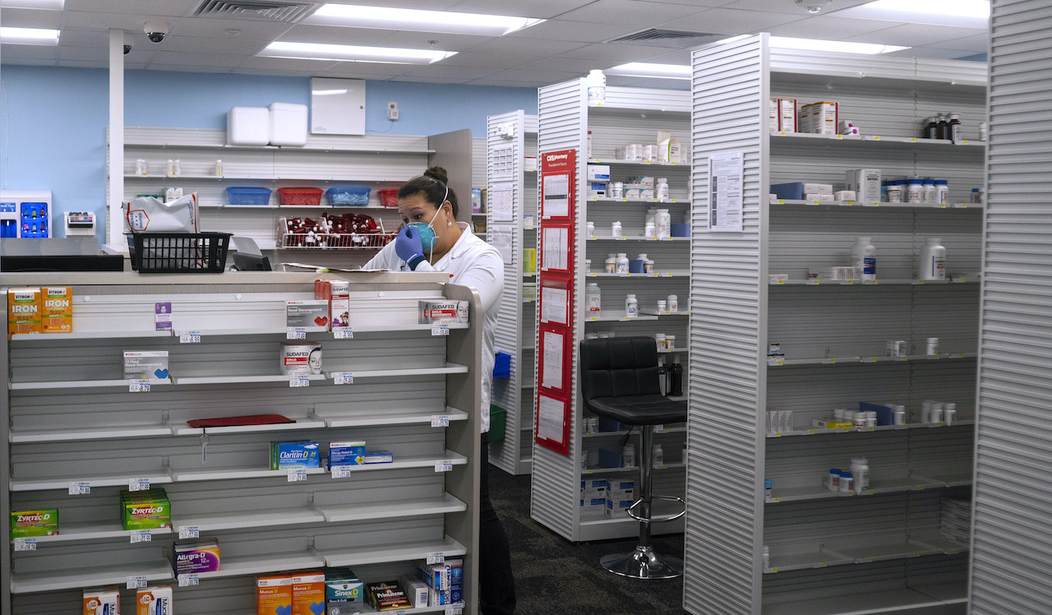Since the start of our national struggle against coronavirus, lines of political partisanship have shifted as lawmakers came together to pass three unprecedented relief packages totaling more than $3 trillion. The legislation wasn’t perfect, but it does offer critically needed funding for mitigating the economic impact of COVID-19.
In retrospect, it's clear to see who has been hit hardest by the coronavirus, and where needed dollars will have the most impact and return. Therefore, it is incumbent on the president and Congress to ensure that future relief packages are efficient, effective and targeted at sectors of our health care economy that need the most help. While our nation’s nursing homes have received meaningful direct relief, the long-term care (LTC) pharmacies that serve America’s most vulnerable seniors in nursing homes have been overlooked. Elected officials and policymakers must step up to address this glaring gap.
Heart-wrenching reports from across the country have documented the tragic and disproportionate impact of COVID-19 on nursing homes and assisted living facilities. Among the tens of thousands of Americans who have lost their lives to this virus, more than 40% of all deaths have occurred within nursing homes and other long-term care communities. It’s a national tragedy and a staggering disgrace that our most susceptible citizens have been left without meaningful support from Washington.
While the administration has moved to provide some relief to long-term care facilities, LTCs have been ignored.
Recommended
Dubbed occasionally “closed-door” pharmacies, LTC pharmacies provide essential medication and clinical services to millions of vulnerable seniors every day. While comparisons are often drawn between LTC pharmacies and conventional retail pharmacies, such comparisons belie the enormous swath of services this sector provides. Dispensing an average of 12 prescription drugs per resident per day, LTC pharmacies provide specialized packaging, at least one daily delivery (if not more), and consulting services critical to medication management for patient populations that are medically compromised.
As COVID-19 spread rapidly in nursing homes and assisted living facilities, LTC pharmacies quickly adopted enhanced infection control measures in order to continue safely delivering medications to concentrated populations of vulnerable patients. Because underlying conditions simply don’t disappear during a pandemic, these pharmacies continue to prove their critical role in the care delivery continuum.
Unfortunately, the unforeseen costs of responding to COVID-19 and substantial revenue drops have plunged LTC pharmacies into dangerous financial straits. COVID-related expenses on additional personal protective equipment (PPE), employee support, medication supplies, and social distancing (not to mention plummeting nursing home admissions) have all taken an economic toll. Substantial revenue declines that began in March have continued to worsen in subsequent months, reaching nearly 30 percent by the end of May. While some states are seeing a return to normal, a rebound in LTC facilities is unlikely to come anytime soon.
It is no exaggeration to say that, in the absence of support from President Trump and his administration, the coming months will put uninterrupted access to essential medications for nursing home residents at serious jeopardy. Worse still, with the looming threat of a second wave of COVID-19 infections later in the year, these disruptions might occur when nursing home communities are once-again under viral siege.
This cannot be allowed to happen.
Any future relief effort must address the impact on the LTC pharmacies that support residents in LTC facilities. The Department of Health and Human Services (HHS) must step up to provide emergency funding to this essential and beleaguered sector.
Under the CARES Act, $175 billion was appropriated for the Public Health and Social Service Emergency Fund, which provides grants to eligible providers. LTC pharmacies are eligible and deserve a fair portion of this aid.
Beyond existing funding programs, the president might also use his bully pulpit to urge lawmakers to include emergency relief for LTC pharmacies in the next round of COVID-19 legislation. LTC pharmacies form a critical part of our health care system’s frontline infrastructure and should be a national funding priority.
Above all, when the president considers relief for post-acute and long-term care providers and the patients they serve, he should not think of this community in the abstract. He must think of them as our parents, grandparents, veterans and the custodians of cultural and historical legacies that go back decades. These patients and their providers need help; I urge the President to oblige them.

























Join the conversation as a VIP Member